Jeux de paysages
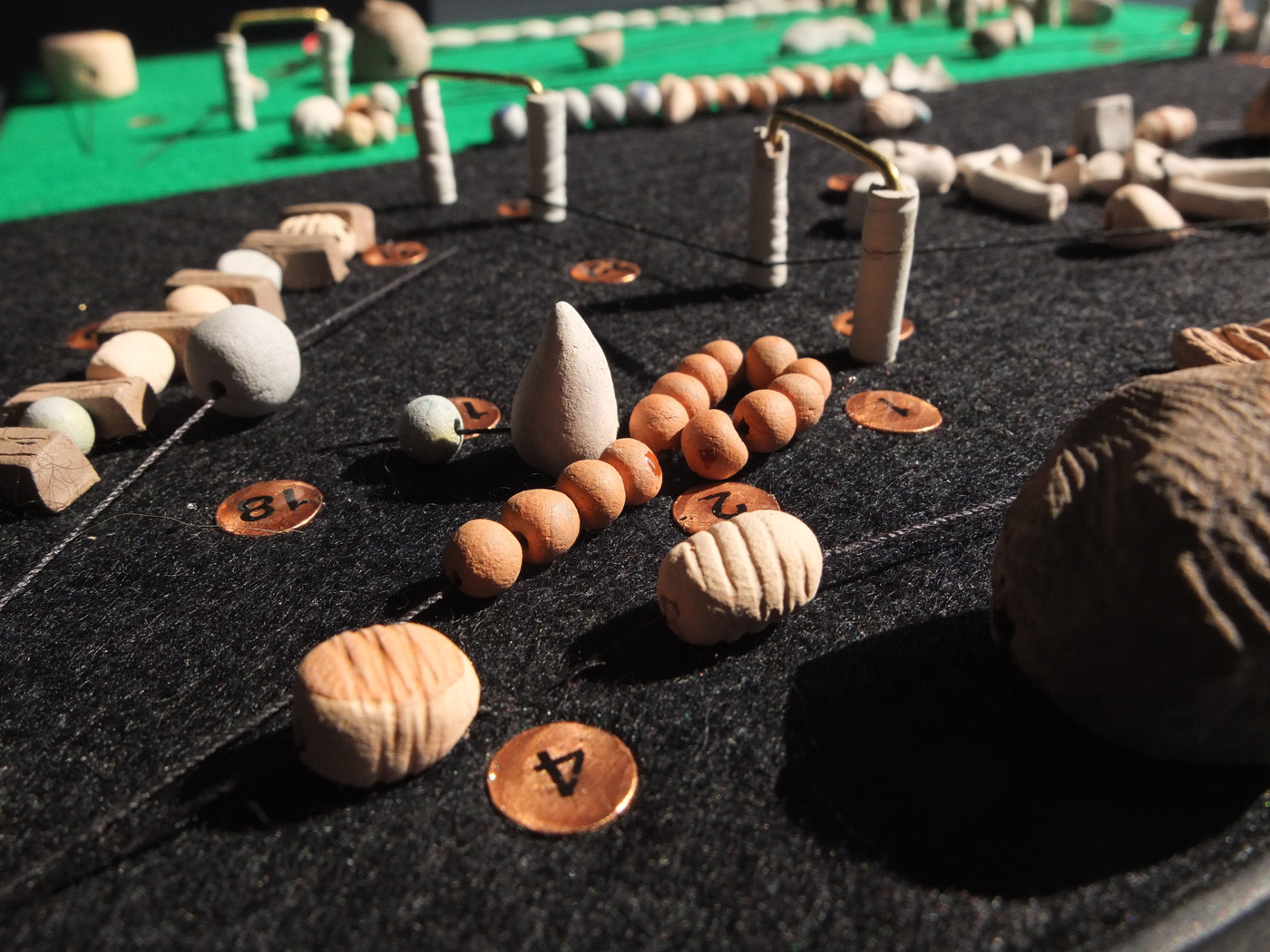
Jeux de paysages

Jeux de paysages
Vue d'exposition
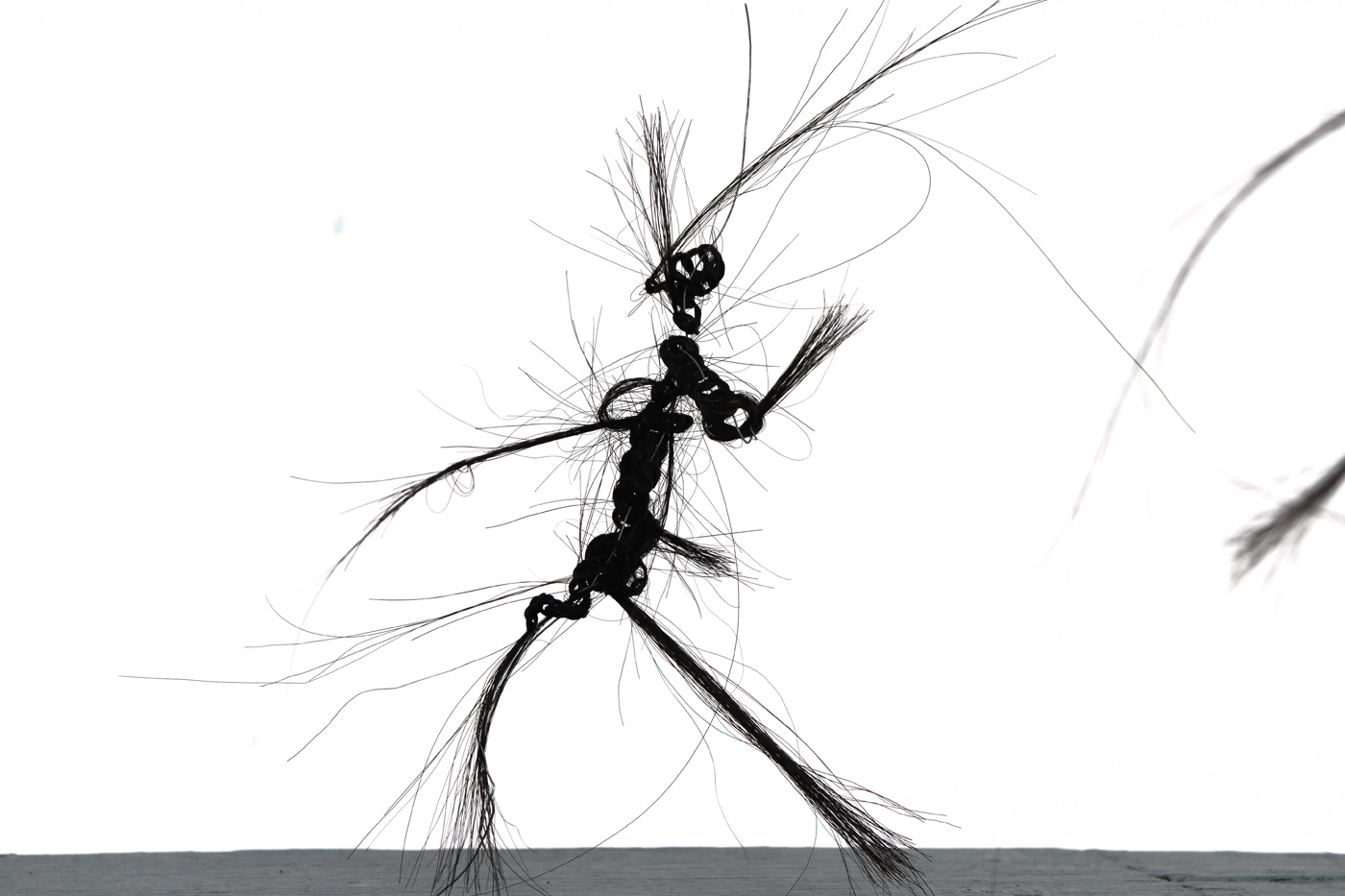
Jeux de paysages
Vue d'exposition
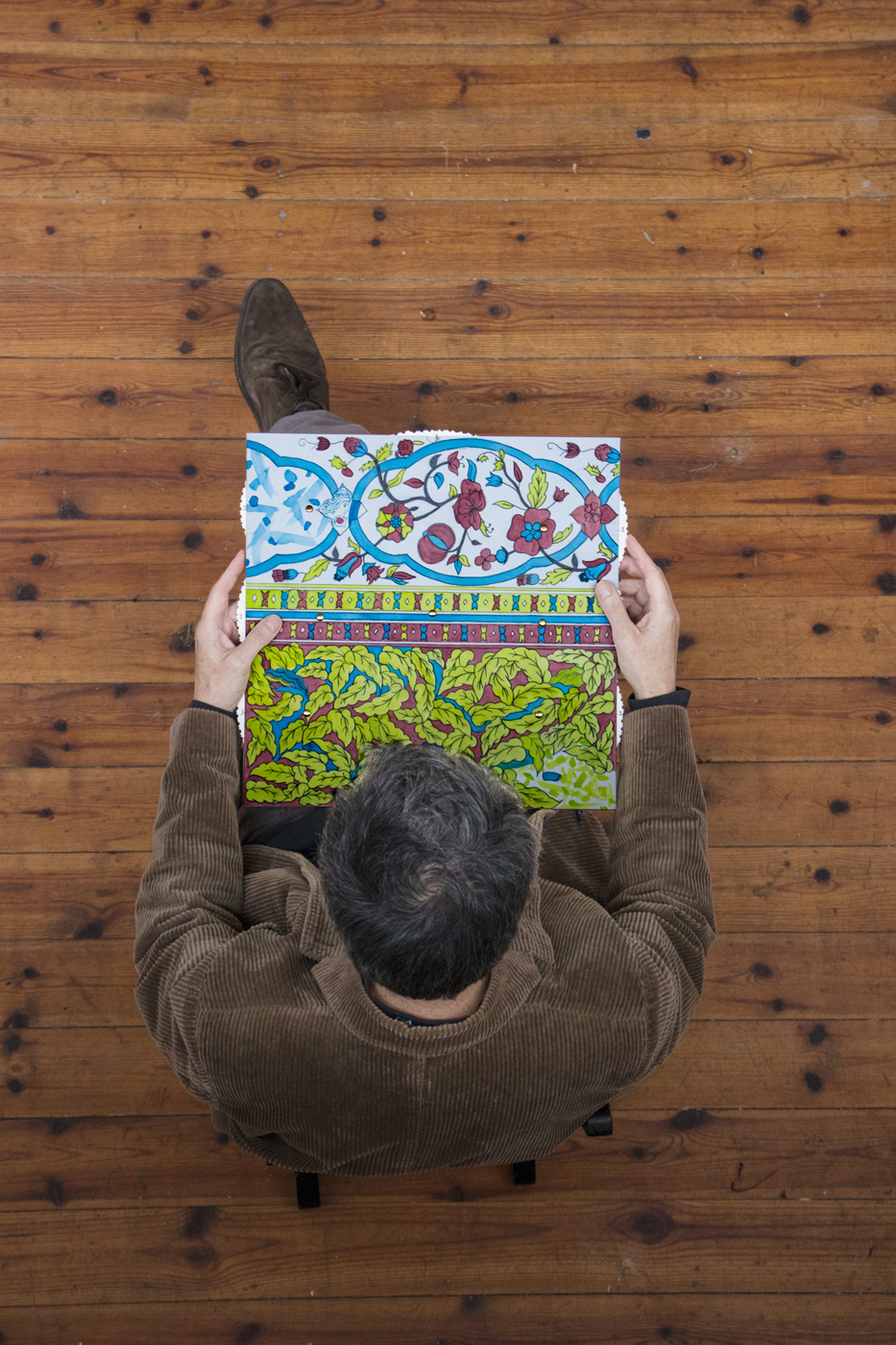
Jeux de paysages
Vue d'exposition
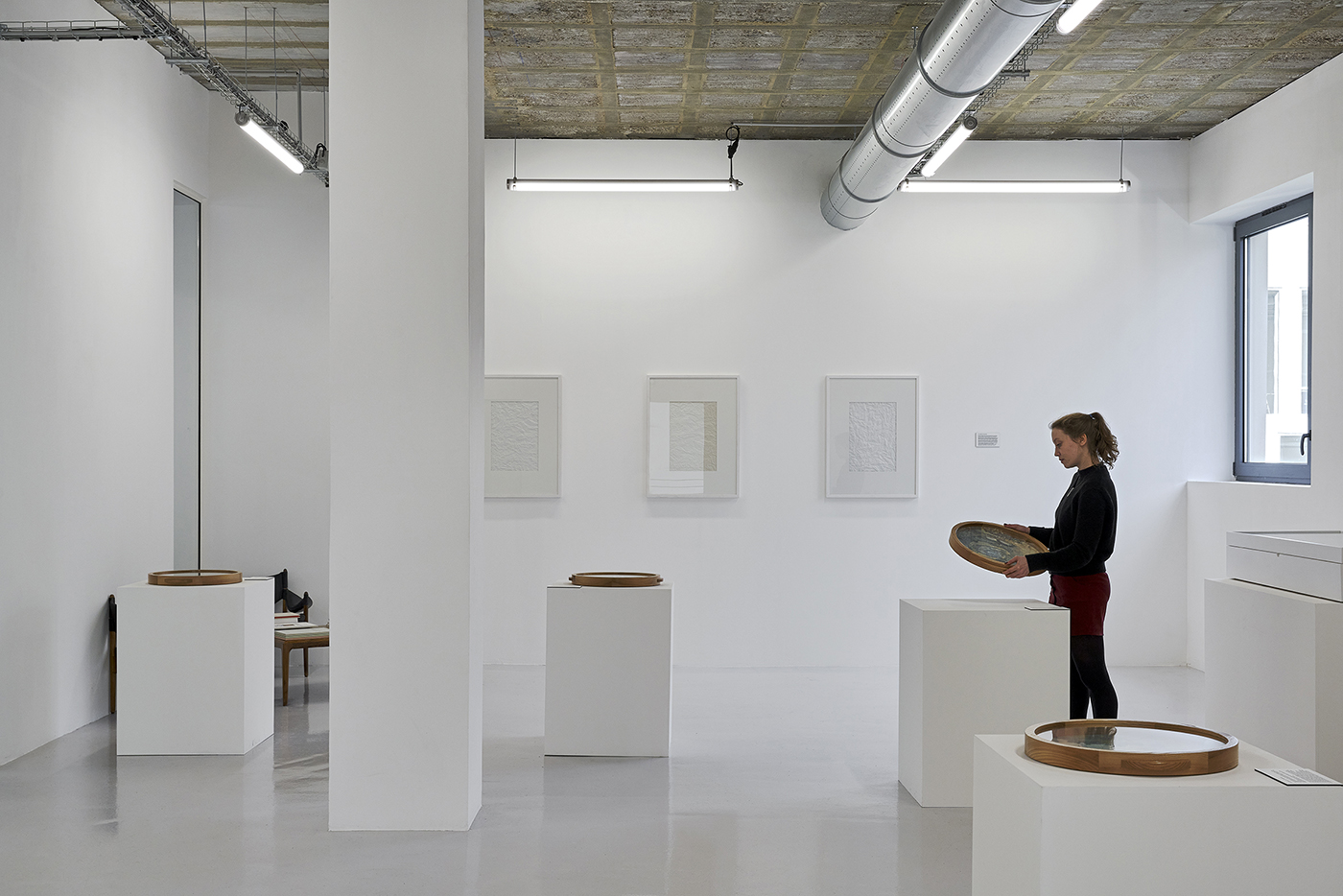
Jeux de paysages
Vue d'exposition
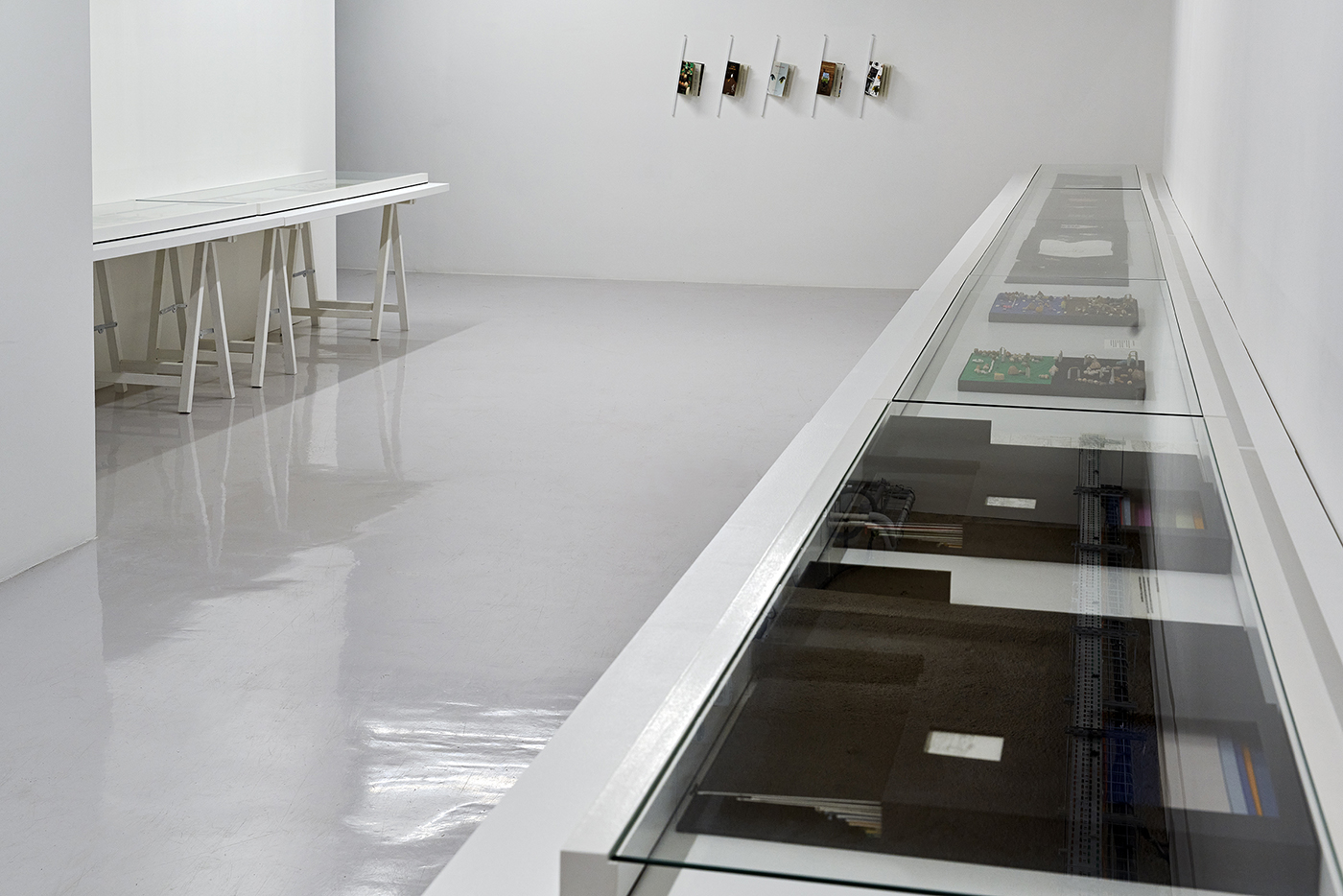
Jeux de paysages
Vue d'exposition
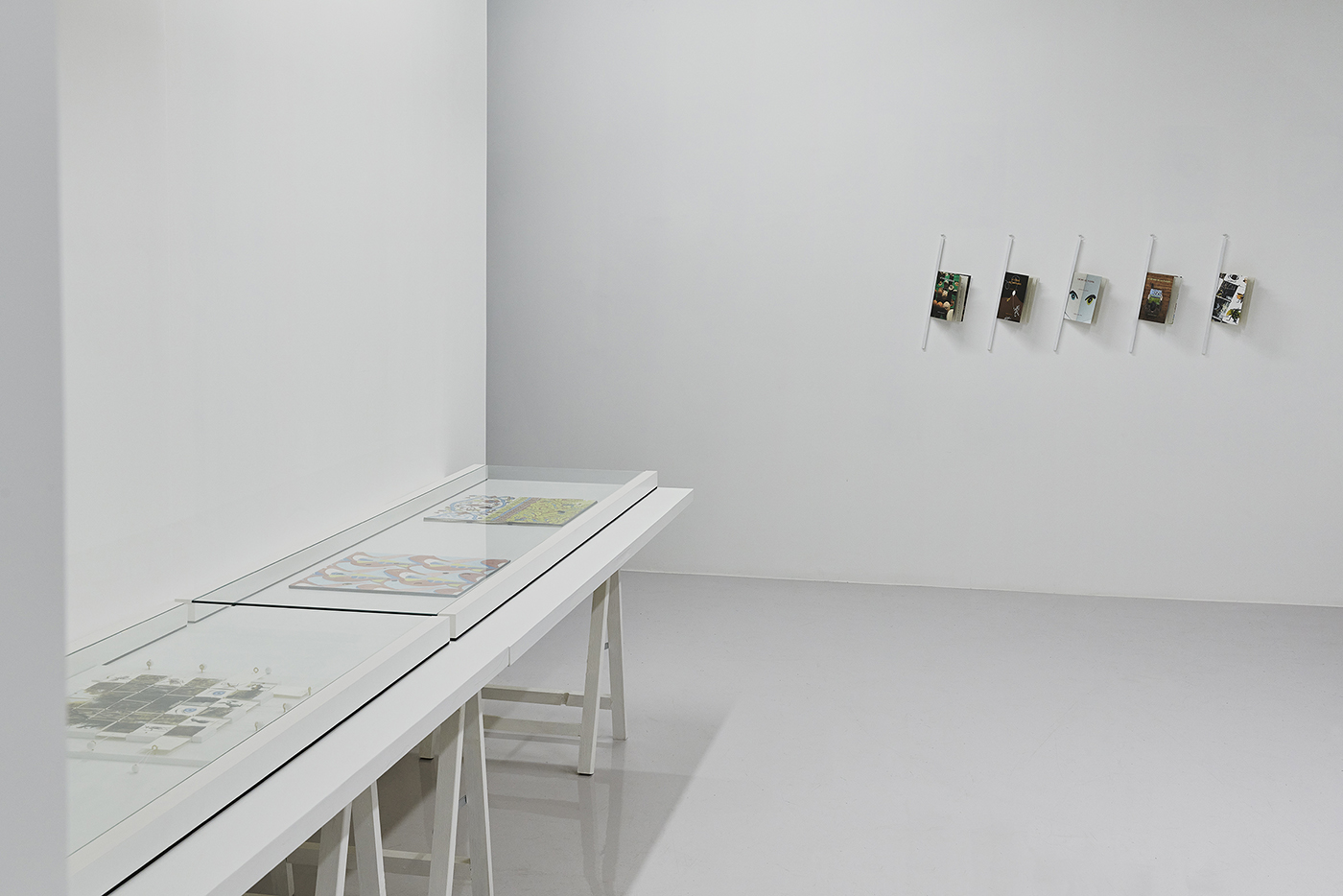
Jeux de paysages
Vue d'exposition
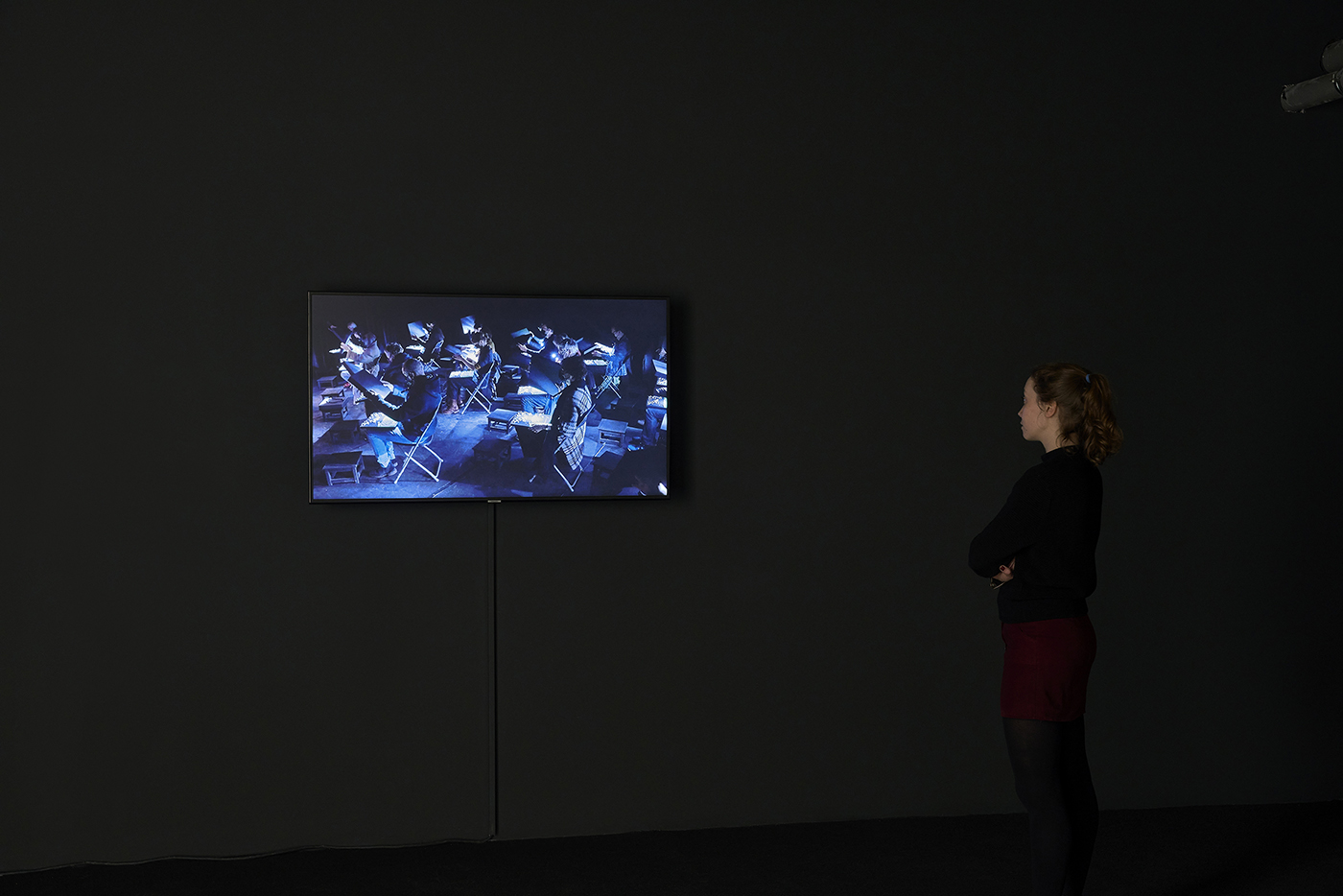
Jeux de paysages
Vue d'exposition
OPENING SUNDAY FEBRUARY 20TH, 2022
GUIDED TOUR / PERFORMANCE SUNDAY FEBRUARY 20TH, AT 3.30 PM
More information here
The story of Jeux de paysages ["Landscape Games"] started two years ago with a visit to the Wellcome Collection in London. An exhibition was being held there called Play Well[1] that explored the many evolutions to which play activities led man and society. The visitor could see how it favored the development of social links, emotion resilience and physical well-being. Of course, all sorts of toys were displayed but also design objects and artworks The series Artificial Landscape by Constant (1920-2005) attracted Patrick Corillon's attention because of their forms, the spontaneous interaction that they caused and the central place of a narration in which the concept of a city extending to the world was organized.
This comment is important: these three elements are founders of a substantial part of Corillon's work and, in particular, the narrative that his work has centered on since the 1980s to deploy a scholarly and dense body of work. The question of the reality of the imagination holds a privileged place in it. The "genuine fictions" that he writes in the objective observation style is shown by the production of tangible objects. In the same way, Patrick Corillon bases his research on broadly shared common realities and experiences; here, toys that are or were well-known. They share the virtues of obviousness and simplicity of daily life and things that are readily available. All encourage interactivity: this concerns undergoing a test; for the public, "intervening" replaces "looking." Consequently Les Yeux du paysage ["The Landscape's Eyes"] follows a widespread model according to which the player must balance a tray in such a way as the marbles are inserted into the holes created for this purpose to provide a character with eyes.
The difference here is that the game doesn't stop once the marbles are immobilized. One of them has letters and the other numbers.? Following the rules of the game, the player must continue by creating associations with the elements relative as much to the exterior world (since the names of a city, a river, etc. must be given) as to spiritual or sentimental life. And then, there is the character using a cane. It is the Wandering Jew with the group of meanings that he carries with him. Waiting for the hypothetical return of Christ, he crisscrosses the Earth without respite and appears here and there: Corillon prints his image on an old urban map or "views" among which painting connoisseurs will recognize Hubert Robert's style.
The exhibition's title is explicit: it directly expresses a double anchoring, on one hand, on games and, on the other, landscapes. Apart from joining two themes, Corillon intertwines his proposals. The different pieces call out to each other. Thus, the Wandering Jew reappears in Le paysage sans fin ["The Endless Landscape"]. Here, the player manipulates 10 watercolors composed according to the where the continuity elements are placed ? five in total including of course the horizon line ? in such a way that they are randomly juxtaposed? not really randomly since each movement lets new combinations of motifs and therefore new stories appear. As always in Patrick Corillon, the reading of his work has multiple thicknesses. Beyond the play activity, we can let ourselves be carried into a labyrinth of meaning. Moreover, the artist invites us into it by, for example, specifying that the 10 paintings are "after": after an anonymous artist of the Roman period, but also after Patenir, Poussin and Giorgione, whose famous work The Tempest we recognize in it. It also refers us to the Persian miniature through the palette, the graphic style, the perspective system and the referential device of the human figures and architectures. Among other things, the work therefore harbors reflections on the construction of the imaginary dimension (how do we build it? starting from what heritage?), on the capacity of our vision of the world to be broadly communicated (how can it function in another culture?) and on a reconciliation of civilizations.
Patrick Corillon's work activates metaphors, symbols and archetypes. We see it with the series of performances reprised under the title Dans l'amitié de mes genoux ["In My Knee's Friendship"]: four 50-minute travel tales, narrated by an actress, that participants follow through game boards to be animated. "this series proposes an intimate and sensorial experience," the artist states. "Its objective is to thrust the spectators into a story in which they become the actors. The central question being: how do we physically and poetically appropriate our landscapes, feel like a genuine actor of them so that we can project ourselves into an environmental and climate future?"[2] There are cubes to be assembled (C?urs de pierre ["Stone Hearts"]), fabrics to be unrolled (Le cirque des montagnes ["The Mountain Circus"]), disks to turn (Le voyage de la flaque [The Puddle's Journey"]) and for Le dessous dessus ["The Below Above"], beads to slide along a thread. The latter trace the initiation journey of the "metronome worm," the depths of the Earth in open air, with its pitfalls - a pocket of shale oil - its symbolic engagements - a skull evoking death, the vanity of existence or of ancestors - and its encounters with different creatures such as a mole, a blackbird and two children. There is a great deal to say about the materials used and the meaning of the beads, which varies from one culture to another, or about the educational value of play. "The metronome worm," Patrick Corillon continues, "learns to move, to think and to act by itself, breaking with the "regularity" of its predetermined destiny to appropriate its own rhythm."[3] It is therefore a question of undergoing a test involving learning, transmission and emancipation.